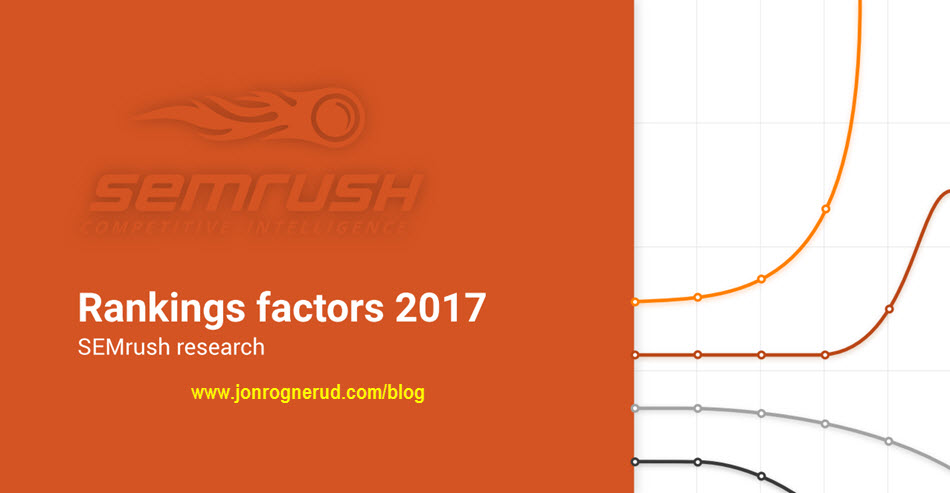In the new “SEMrush ranking factors” research report, we see the top factors that can influence search rankings. These affect positions in Google and are centered around website visits, traffic, authority / trust of the website and pages.
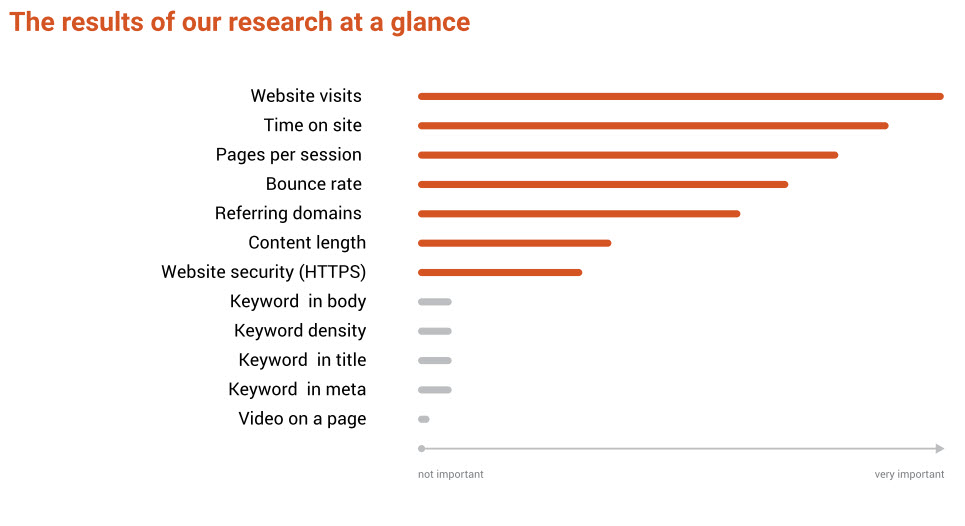
Furthermore, and very revealing about the changes in search: Data showing behavior and engagement metrics are increasing in importance.
User experience and engagement metrics include things like:
- Time on site
- Pages per session
- Bounce rates
… these can have a positive effect.
Finally, referring domains (back links) and content round out the top 6 of the study.
Data Points For Research Study
The research included 600,000 keywords from a global based data set. Machine learning using Random forest were applied to get a list of factors that influence page position from the most influential to the least influential.
This was broken down into the top 10 search results for each keyword.
Each resulting page were analyzed via:
On-page factors
Backlink profiles
Traffic data
These were then broken down into low volume, mid volume, high volume and very high volume keyword classes. Keyword lengths were included and broken out via short-head terms and long tail terms.
Research Findings And Takeaways
- Number of visits indicate the most important page ranking factor. Authority drives most traffic and have a better chance to get to the top.
- User behavior signals provide strong indicators for pages to rank.
- Referring domains build authority (if done right) and build top rankings.
- Https didn’t affect the rankings study as much as previously thought.
- On-page SEO factors didn’t show as a major ranking factor.
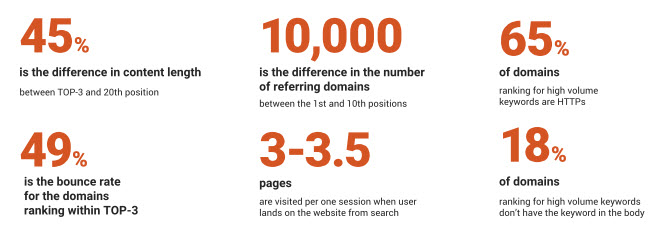
When you compare SEMrush findings with the Moz research report on factors that influence the Google algorithm, there are differences. In the Moz report, the results show that domain-level link features along with page-level links and page-level keywords and content round out the top three.
And, the Local SEO data research represents another set of data findings to help local businesses get listed in Google Local Maps. Both from Moz and Local SEO Guide.
Get my Ultimate SEO Checklist so you can get more quality traffic from Google.
(Includes a bonus gift and complimentary SEO Strategy Session)
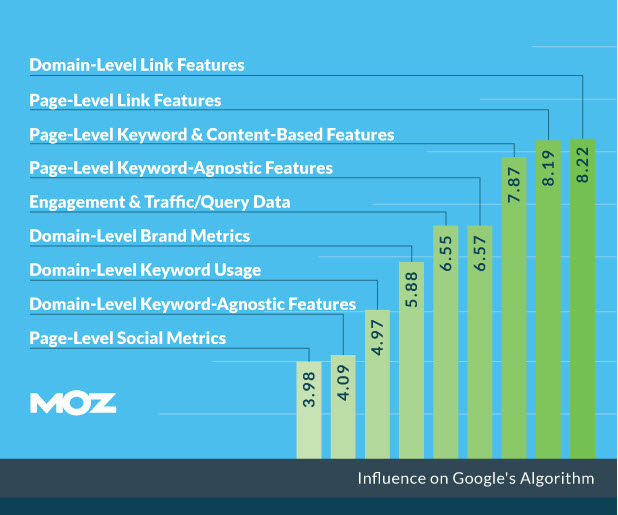
The top ranking factors are still centered around content and links, as seen in these two research reports.
Searchmetrics ranking study claims that backlinks have a lesser degree of importance, and that user signals, technical factors, content relevance and user intent is more significant. This is specially true with the rollout of machine learning and RankBrain.
Read more on Toxic Backlinks and Ranking Factors.
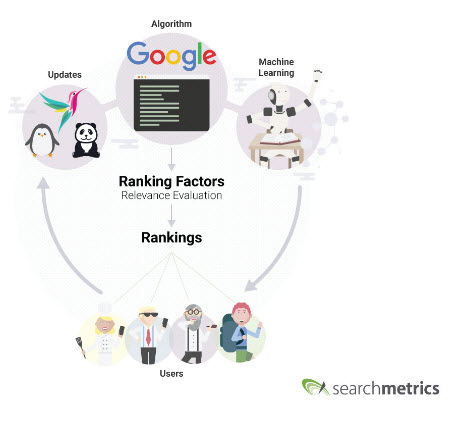
Searchengineland has put together their own perspective on SEO success ranking factors via the SEO periodic table. As you’ve seen – the research points to “content and links”. It’s the foundation of the web, and Google adopted this model a long time ago.
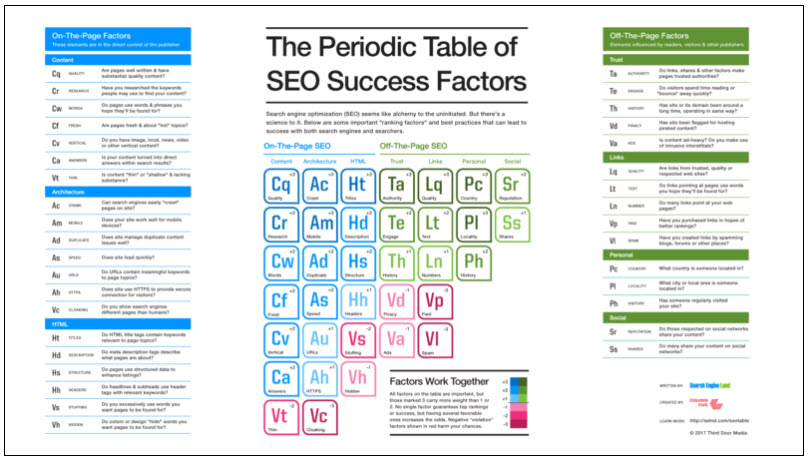
Featured Snippets Study (Content Strategy & Opportunity)
In a recent 2 million featured snippets study from ahrefs.com – the types of search queries along with many other factors can affect “Position Zero” in Google.
This is the “answer box” that shows up directly within the Google search results. I’m bringing in this study here, because it speaks to strategic content creation, relevance and authority for your website pages. Your strongest pages tend to not only show up in the top positions, but answering questions and providing immediate value can and will make a bigger impact for you. Just make sure to have up to date content, provide questions and answers on your page, make it short, specific and list / table and image formatted.
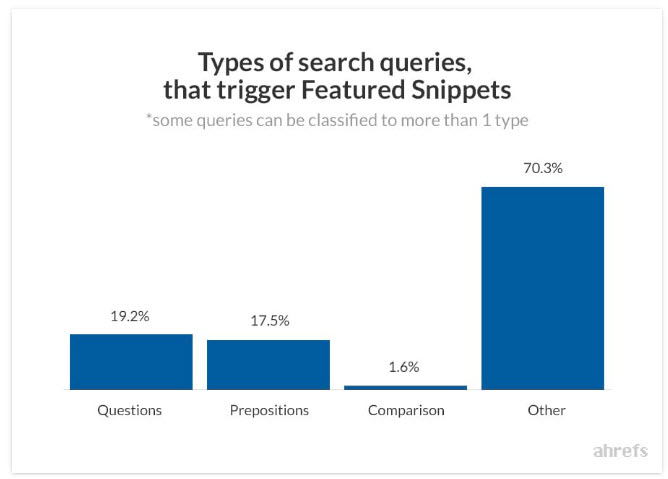
Featured Snippets – Answer Box example
Based on the query “How do I optimize my website” – a featured snippet is presented. It’s a high authority trusted article in a list format – which I wrote for Entrepreneur a few years back. The position zero spot can be attained in this way.
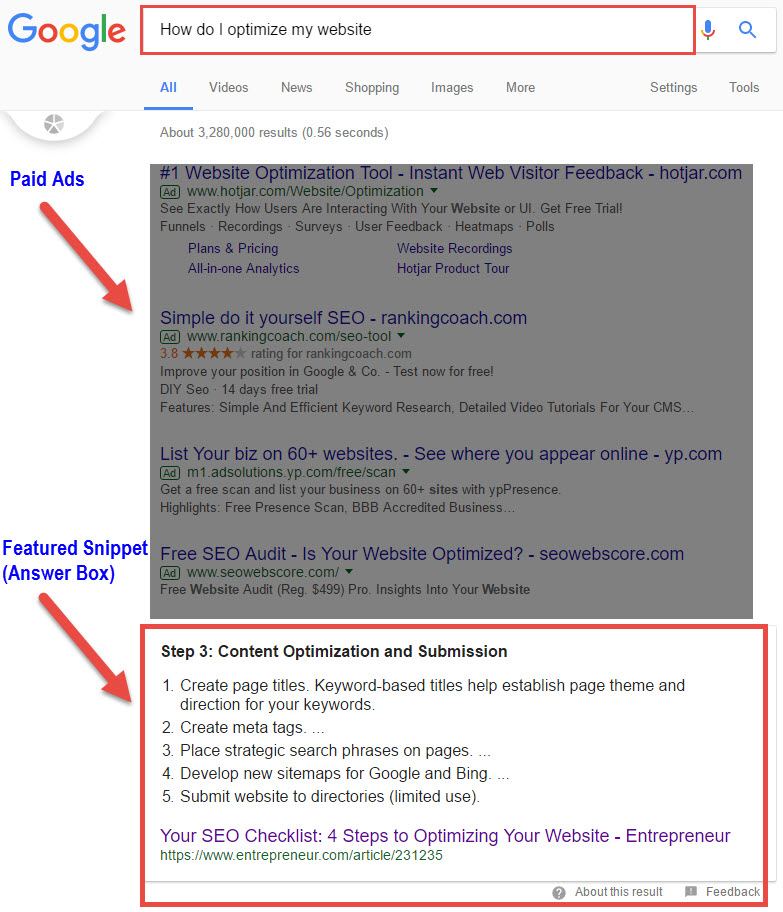
What Can You Do Based On This Research?
Research, analysis and data is critical. This is true for any industry, whether looking at user behavior in advertising, marketing campaigns in a broader sense, and certainly search engine ranking factors.
However, collecting data points is one thing. Gathering your own data and applying intelligent steps of action is another.
Therefore, my biggest recommendation I can give you: Make sure you apply analytics, tracking scripts, tags and parameters to everything you do in your digital eco-space.
Then, as you COLLECT and MEASURE your OWN data, continue to put your best foot forward … to provide relevant, useful and helpful information to serve your customers and clients.
When you do, search engines and business revenue will follow. Industry research data and ranking factors studies all point to the same: “content and links”. Done right, it builds authority and trust over time, and you’ll end up on the first page of the SERPs.
In other words, use all this search engine research as a guide, but discover your internal data and research to set real action steps for your success in search and digital marketing.
The Good News
If you like what you’ve seen here and struggling to get order in your SEO and digital strategies, I’ve set aside some time to help you.
Just register and select a date here.
